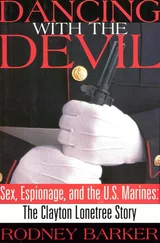Heywood Broun - The A. E. F. - With General Pershing and the American Forces
Здесь есть возможность читать онлайн «Heywood Broun - The A. E. F. - With General Pershing and the American Forces» — ознакомительный отрывок электронной книги совершенно бесплатно, а после прочтения отрывка купить полную версию. В некоторых случаях можно слушать аудио, скачать через торрент в формате fb2 и присутствует краткое содержание. ISBN: , Жанр: foreign_antique, foreign_prose, foreign_language, на английском языке. Описание произведения, (предисловие) а так же отзывы посетителей доступны на портале библиотеки ЛибКат.
- Название:The A. E. F.: With General Pershing and the American Forces
- Автор:
- Жанр:
- Год:неизвестен
- ISBN:http://www.gutenberg.org/ebooks/39072
- Рейтинг книги:4 / 5. Голосов: 1
-
Избранное:Добавить в избранное
- Отзывы:
-
Ваша оценка:
- 80
- 1
- 2
- 3
- 4
- 5
The A. E. F.: With General Pershing and the American Forces: краткое содержание, описание и аннотация
Предлагаем к чтению аннотацию, описание, краткое содержание или предисловие (зависит от того, что написал сам автор книги «The A. E. F.: With General Pershing and the American Forces»). Если вы не нашли необходимую информацию о книге — напишите в комментариях, мы постараемся отыскать её.
The A. E. F.: With General Pershing and the American Forces — читать онлайн ознакомительный отрывок
Ниже представлен текст книги, разбитый по страницам. Система сохранения места последней прочитанной страницы, позволяет с удобством читать онлайн бесплатно книгу «The A. E. F.: With General Pershing and the American Forces», без необходимости каждый раз заново искать на чём Вы остановились. Поставьте закладку, и сможете в любой момент перейти на страницу, на которой закончили чтение.
Интервал:
Закладка:
And yet we Americans missed the old patter until there came a breath from across the sea. A low comedian came out and said to his partner in perfectly good English: "Well, didja like the show?" His partner said he didn't like the show. "Well, didja notice the trained seals?" persisted the low comedian and the lower comedian answered: "No, the wind was against 'em." Laughter long delayed overcame us then, but it was mingled with tears. We felt that we were home again. The French are a wonderful people and all that, of course, but they're so darn far away.
Later there was a man who imitated Eddie Foy imperfectly and a bad bicycle act in which the performers called the orchestra leader "Professor" and shouted "Ready" to each other just before missing each trick. This bucked the Americans up so much that a lapse into French with Suzanne Valroger "dans son repertoire" failed to annoy anybody very much. The doughboys didn't care whether she came back with her repertoire or on it. Some Japanese acrobats and a Swedish contortionist completed the performance. There are two such international music halls in Paris as well as a musical comedy of a sort called "The Good Luck Girl." The feature of this performance is an act in which a young lady swings over the audience and invites the soldiers to capture the shoe dangling from her right foot. The shoe is supposed to be very lucky and soldiers try hard to get it, standing up in their seats and snatching as the girl swings by. An American sergeant was the winner the night I went to the show, for he climbed upon a comrade's shoulder and had the slipper off before the girl had time to swing out very far. Later, when he went to the trenches, the sergeant took the shoe with him and he says that up to date he has no reason to doubt the value of the charm.
The most elaborate spectacle inspired by the coming of the Americans was at the Folies Bergères which sent its chorus out for the final number all spangled with stars. The leader of the chorus was an enormous woman, at least six feet tall, who carried an immense American flag. She almost took the head off a Canadian one night as he dozed in a stage box and failed to notice the violent manner in which the big flag was being swung. He awoke just in time to dodge and then he shook an accusing finger at the Amazon. "Why aren't you in khaki?" he said.
Restaurants as well as theaters were liberally sprinkled with men in the American uniform. The enlisted men ate for the most part in French barracks and seemed to fare well enough, although one doughboy, after being served with spinach as a separate course, complained: "I do wish they'd get all the stuff on the table at once like we do in the army. I don't want to be surprised, I want to be fed." A young first lieutenant was scornful of French claims to master cookery. "Why, they don't know how to fry eggs," he said. "I've asked for fried eggs again and again and do you know what they do? They put 'em in a little dish and bake 'em."
Yet, barring this curious and barbarous custom in the cooking of eggs, the French chefs were able to charm the palates of Americans even in a year which bristled with food restrictions. There were two meatless days a week, sugar was issued in rations of a pound a month per person and bread was gray and gritty. The French were always able to get around these handicaps. The food director, for instance, called the ice cream makers together and ordered them to cease making their product in order to save sugar.
"We have been using a substitute for sugar for seven months," replied the merchants.
"Well, then," said the food director, "it will save eggs."
"We have hit upon a method which makes eggs unnecessary," replied the ice cream makers.
"At any rate," persisted the food director, "my order will save unnecessary consumption of milk."
"We use a substitute for that, too," the confectioners answered, and they were allowed to go on with their trade.
The cooks are even more ingenious than the confectioners. As long as they have the materials with which to compound sauces, meat makes little difference. War bread might be terrapin itself after a French chef has softened and sabled it with thick black dressing. Americans found that the French took food much more seriously than we do in America. Patrons always reviewed the carte du jour carefully before making a selection. It was not enough to get something which would do. The meal would fall something short of success if the diner did not succeed in getting what he wanted most. No waiter ever hurried a soldier who was engaged in the task of composing a dinner. He might be a man who was going back to the trenches the next day and in such a case this last good meal would not be a matter to be entered upon lightly. After all, if it is a last dinner a man wants to consider carefully, whether he shall order contrefilet à la Bourguignon or poulet roti à l'Espagnol .
Whatever may be his demeanor while engaged in the business of making war or ordering a meal, the Frenchman makes his permission a real vacation. He talks a good deal of shop. The man at the next table is telling of a German air raid, only, naturally, he calls them Boches. A prison camp, he explains, was brilliantly illuminated so that the Boche prisoners might not escape under the cover of darkness. One night the enemy aviators came over that way and mistook the prison camp for a railroad station. They dropped a number of bombs and killed ten of their comrades. Everybody at the soldier's table regarded this as a good joke, more particularly as the narrator vivified the incident by rolling his war bread into pellets and bombarding the table by way of illustration, accompanied by loud cries of "Plop! Plop!"
Practically every man on permission in Paris is making love to someone and usually in an open carriage or at the center table of a large restaurant. Nobody even turns around to look if a soldier walks along a street with his arm about a girl's waist. American officers, however, frowned on such exhibitions of demonstrativeness by doughboys and in one provincial town a colonel issued an order: "American soldiers will not place their arms around the waists of young ladies while walking in any of the principal thoroughfares of this town."
Still it was not possible to regulate romance entirely out of existence. "There was a girl used to pass my car every morning," said a sergeant chauffeur, "and she was so good looking that I got a man to teach me 'bon jour,' and I used to smile at her and say that when she went by and she'd say 'bon jour' and smile back. One morning I got an apple and I handed it to her and said ' pour vous ' like I'd been taught. She took it and came right back with, 'Oh, I'm ever so much obliged,' and there like a chump I'd been holding myself down to ' bon jour ' for two weeks."
There could be no question of the devotion of Paris to the American army. Indeed, so rampant was affection that it was occasionally embarrassing. One officer slipped in alighting from the elevator of his hotel and sprained his ankle rather badly. He was hobbling down one of the boulevards that afternoon with the aid of a cane when a large automobile dashed up to the curb and an elderly French lady who was the sole occupant beckoned to him and cried: " Premier blessé ." The officer hesitated and a man who was passing stepped up and said: "May I interpret for you?" The officer said he would be much obliged. The volunteer interpreter talked to the old lady for a moment and then he turned and explained: "Madame is desirous of taking you in her car wherever you want to go, because she says she is anxious to do something for the first American soldier wounded on the soil of France."
The devotion of Paris was so obvious that it palled on one or two who grew fickle. I saw a doughboy sitting in front of the Café de la Paix one bright afternoon. He was drinking champagne of a sort and smoking a large cigar. The sun shone on one of the liveliest streets of a still gay Paris. It was a street made brave with bright uniforms. Brighter eyes of obvious non-combatants gazed at him with admiration. I was sitting at the next table and I leaned over and asked: "How do you like Paris?"
Читать дальшеИнтервал:
Закладка:
Похожие книги на «The A. E. F.: With General Pershing and the American Forces»
Представляем Вашему вниманию похожие книги на «The A. E. F.: With General Pershing and the American Forces» списком для выбора. Мы отобрали схожую по названию и смыслу литературу в надежде предоставить читателям больше вариантов отыскать новые, интересные, ещё непрочитанные произведения.
Обсуждение, отзывы о книге «The A. E. F.: With General Pershing and the American Forces» и просто собственные мнения читателей. Оставьте ваши комментарии, напишите, что Вы думаете о произведении, его смысле или главных героях. Укажите что конкретно понравилось, а что нет, и почему Вы так считаете.












